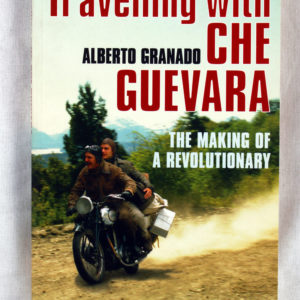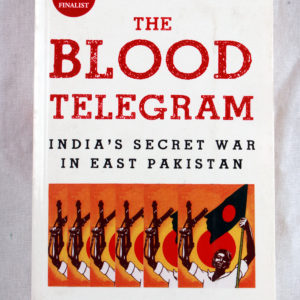The Art of War
₨ 318.00
The Art of War is a book which should be used to gain advantage of opponents in the boardroom and battlefield alike.
- Categories: History, Non-Fiction
- Tags: left books, Sun Tzu, the art of war
Twenty-Five Hundred years ago, Sun Tzu wrote this classic book of military strategy based on Chinese warfare and military thought. Since that time, all levels of military have used the teaching on Sun Tzu to warfare and civilization have adapted these teachings for use in politics, business and everyday life. The Art of War is a book which should be used to gain advantage of opponents in the boardroom and battlefield alike.
Related products
The Ambedkar Cartoons, 1932–1956
Unnamati Syama Sundar with a Foreword by Suraj Yengde
This history like no other asks you to consider what you are laughing at.
In 2012, the inclusion of a 1949 cartoon by Shankar showing Jawaharlal Nehru whipping a snail-borne B.R. Ambedkar in a school textbook, evoked dalit protest, and a savarna counter on the grounds of artistic freedom. Scholar and cartoonist Unnamati Syama Sundar then undertook an archival survey of cartoons on Ambedkar in the English language press. The result, a collection of over a hundred cartoons from India’s leading publications, drawn by Shankar, Enver Ahmed and R.K. Laxman, among others, lays bare the perverse and thoughtless hostility Ambedkar often contended with. The incisional commentary woven around each cartoon offers a veritable biography of a man historically wronged.
Unnamati Syama Sundar grew up in Vijayawada on a diet of Calvin and Hobbes, Dennis the Menace, Chacha Chaudhary and Amar Chitra Katha. He is doing his doctoral research at Jawaharlal Nehru University on the art featured in Chandamama, the popular Telugu children’s magazine founded in 1947. Syama Sundar is well-known for his Ambedkarite cartoons in the non-savarna social media world. His work is featured regularly on the website roundtableindia.co.in.
with an Introduction,‘The Doctor and the Saint’ by Arundhati Roy
Annihilation of Caste ‘posseses a generic openness to the wounds and decisions of existence which can breach the prisons of the world as no amount of scholarship can’—Biblio
Read a comprehensive interview with Arundhati Roy in Outlook, where she says, ‘Caste is at the heart of the rot in our society. Quite apart from what it has done to the subordinated castes, it has corroded the moral core of the privileged castes. We need to take Ambedkar seriously.’
In 1952 Alberto Granado, a young doctor, and his friend Ernesto Guevara, a 23- year- old medical student from a distinguished Buenos Aires family decided to explore their continent. They set off from Cordoba in Argentina on a 1949 Norton 500cc motorbike and travelled through Chile, Peru, Colombia and Venezuela. They worked as casual labourers along the way, as football coaches, medical assistants, and haulage hands. The poverty and exploitation of the native population changed them for ever. Each man later wrote an account of the journey. Alberto Granado realised later in his life that what they saw and encountered on their journey represented a crucial turning point. It strengthened Alberto’s determination to forge his career as a scientist. And it started the process that was to turn Ernesto- the debonair, fun- loving student- into Che, the man who fought for the liberation of Cuba and became the heroic and glamorous warrior fighting for freedom and social justice, who remains to this day in people’s minds Latin America’s foremost hero and one of the world’s great revolutionaries. A companion to Che’s Motorcycle Diaries, Alberto Granado’s book is a moving and at times hilarious account of how two carefree young men found their true purpose in life.
Drawing on unheard white house tapes, recently declassified documents, and investigative reporting, gary bass uncovers an astonishing story of superpower brinkmanship, war, scandal, and conscience. This is the definitive account of the build-up to the 1971 indo-pakistani war and the birth of bangladesh. In the midst of this cold war cataclysm, the bangladeshis became collateral damage, victims of power games played by nixon, kissinger, yahya khan and even indira gandhi. Revelatory, authoritative and compulsively readable, the blood telegram is a thrilling chronicle of a pivotal chapter in south asian history. Awardspulitzer prize finalista new york times notable book of the yeara washington post notable book of the yearan economist best book of the yeara financial times best book of the yeara new republic best book of the yeara kirkus reviews best book of the year







Reviews
There are no reviews yet.